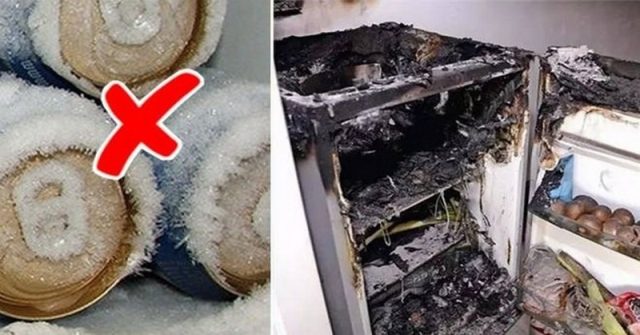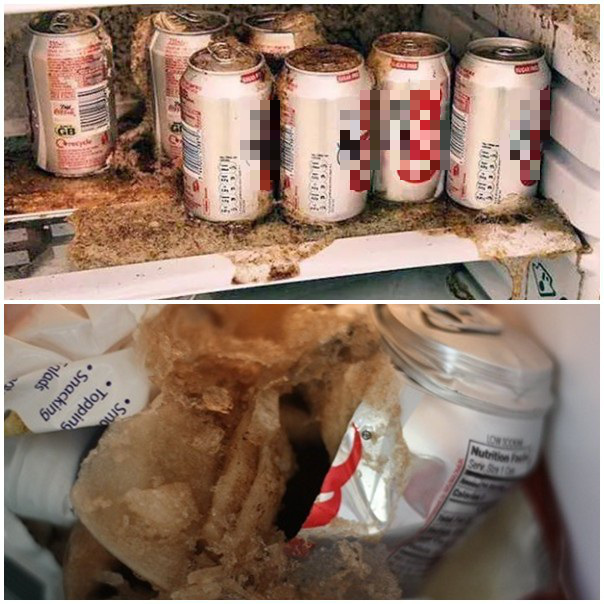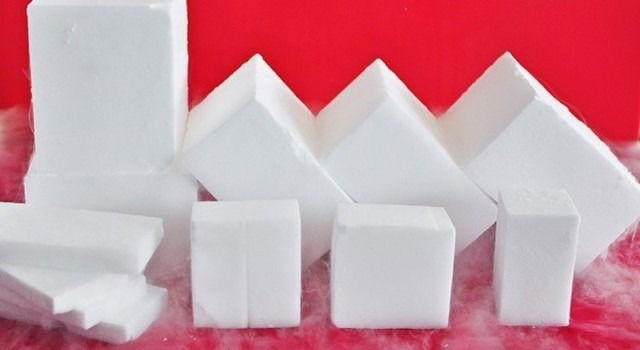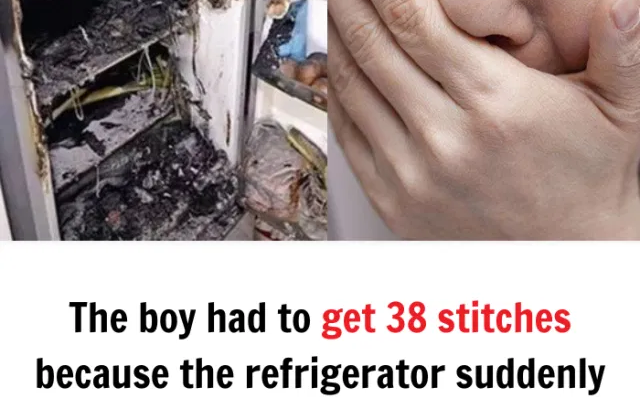It began with a deafening noise that shattered the tranquility—a sound no parent ever wants to hear.
A young boy, brimming with anticipation for a cool drink on a sweltering summer afternoon, eagerly approached the freezer door—unbeknownst to him, a perilous incident was about to occur. In an instant, his innocent happiness transformed into a terrifying emergency.
Blood, terror, and a hurried trip to the emergency room ensued. What caused our failure? You might be unknowingly making the same mistake in your kitchen right now—without realizing the potential danger it poses.
Kitchen remodeling

aution: a young boy required 38 stitches after a fridge malfunction, emphasizing the importance of never placing these items in the freezer.
It’s commonly believed that danger is unavoidable, and it’s accurate — we encounter potential risks on a daily basis. That’s why, to safeguard ourselves and especially our children, we must remain vigilant and pay attention to even the tiniest details. A lapse in attention can result in severe, sometimes permanent, outcomes.
A terrifying explosion took place when the refrigerator door was opened.

In Shanghai, China, a heartbreaking event occurred in an apartment where a young boy, aged 5, sustained a serious injury that necessitated 38 stitches on his face.
Because of the scorching summer temperatures in Shanghai and his fondness for cold beverages, the boy placed a can of soda in the freezer to expedite the chilling process. However, when he eagerly retrieved it from the pantry and opened the can, it burst with a resounding bang. The soda exploded all over the place and the can broke, causing a horrible accident.
Medical professionals have observed an increasing number of patients with injuries caused by mishandling frozen soft drink cans, particularly when they are opened. Storing these cans in the freezer has resulted in numerous unfortunate incidents.
Three items you should never place in the freezer — or risk the possibility of a hazardous explosion.
It’s a common practice for individuals to place food and beverages in the freezer to expedite the cooling process. Nevertheless, this practice can result in hazardous outcomes, causing damage to both the refrigerator and the individual operating it.
Here are three things you should never freeze:
1: Carbonated beverages.

Carbonated beverages are considered to be the most hazardous items on the list. To prevent harm to your refrigerator and yourself, refrain from placing soda cans in the freezer.
When a soda can is placed in the freezer, the liquid inside rapidly cools and expands, causing the can to potentially burst. When the volume surpasses the capacity of the can, coupled with the accumulation of carbon dioxide gas, intense pressure is generated. This can result in the can bursting or exploding unexpectedly.
If you desire a chilled beverage, it is advisable to place the can in the refrigerator or immerse it in ice water for 5 minutes instead of freezing it.
2: Alcoholic beverages.

Bottles of alcohol that are sealed can also burst when kept in the freezer because of the pressure that builds up inside. Additionally, numerous alcoholic beverages are combustible. If the refrigerator experiences any issues or sparks are observed, these substances could potentially ignite and lead to a hazardous fire or explosion.
To ensure a safe and enjoyable experience with cold alcoholic drinks, chill wine in the refrigerator or serve it with ice. Beer can be chilled in an ice bucket, but it is not advisable to store it in the freezer.
3: Dry ice is the solid form of carbon dioxide.

Solid carbon dioxide, also known as dry ice, should never be kept in the freezer. When the temperature drops below -78.5°c, dry ice undergoes a rapid expansion into gas. In a small and enclosed area like a freezer, the volume can expand by a significant amount.
The pressure created by the steam was between 600 and 800 times greater than normal.
The excessive pressure inside the freezer can lead to an explosion, potentially causing damage to nearby objects and endangering the entire household.
Instead, it is recommended to store dry ice in insulated coolers, rather than in the freezer. Additionally, it is crucial to avoid touching dry ice directly with your hands, as it can lead to painful burns. Always employ tongs or insulated gloves when handling it.


